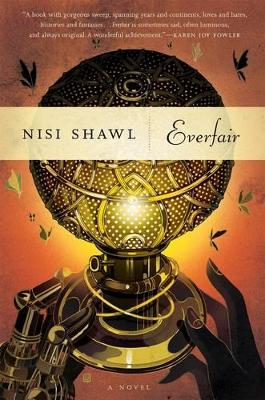Reviewed by nannah on
I went into the reviews a little bit when I thought about putting this down to see how someone could understand this without honestly taking a “Silmarillion approach” to it: print out family trees, the cast list from the beginning (which was greatly appreciated), and perhaps a historical timeline with notes on where I left each PoV character last. Unfortunately, I just didn’t enjoy the writing style, the characters, and especially the storytelling format enough to do any of that. In the reviews, it seems like most people were as confused as I was.
Everfair has about eight characters who take turns with the PoV--which isn’t a problem, but each chapter is around two to three pages each, and it often skips several weeks, months, or even up to five years each time it revisits a character, making me flip back to the last time I read about them. Oftentimes major events would happen in these gaps, leaving me with a character thinking something maybe like, “It’s been ___ months since he’s left me,” and it’s like, he what now? Or someone died, or someone’s madly in love with someone else, and I saw none of the falling in part of it.
I really wanted to love this, like I loved the concept. I got as far as I could, but it’s time to put it down.
Reading updates
- Started reading
- 11 September, 2022: Finished reading
- 11 September, 2022: Reviewed
